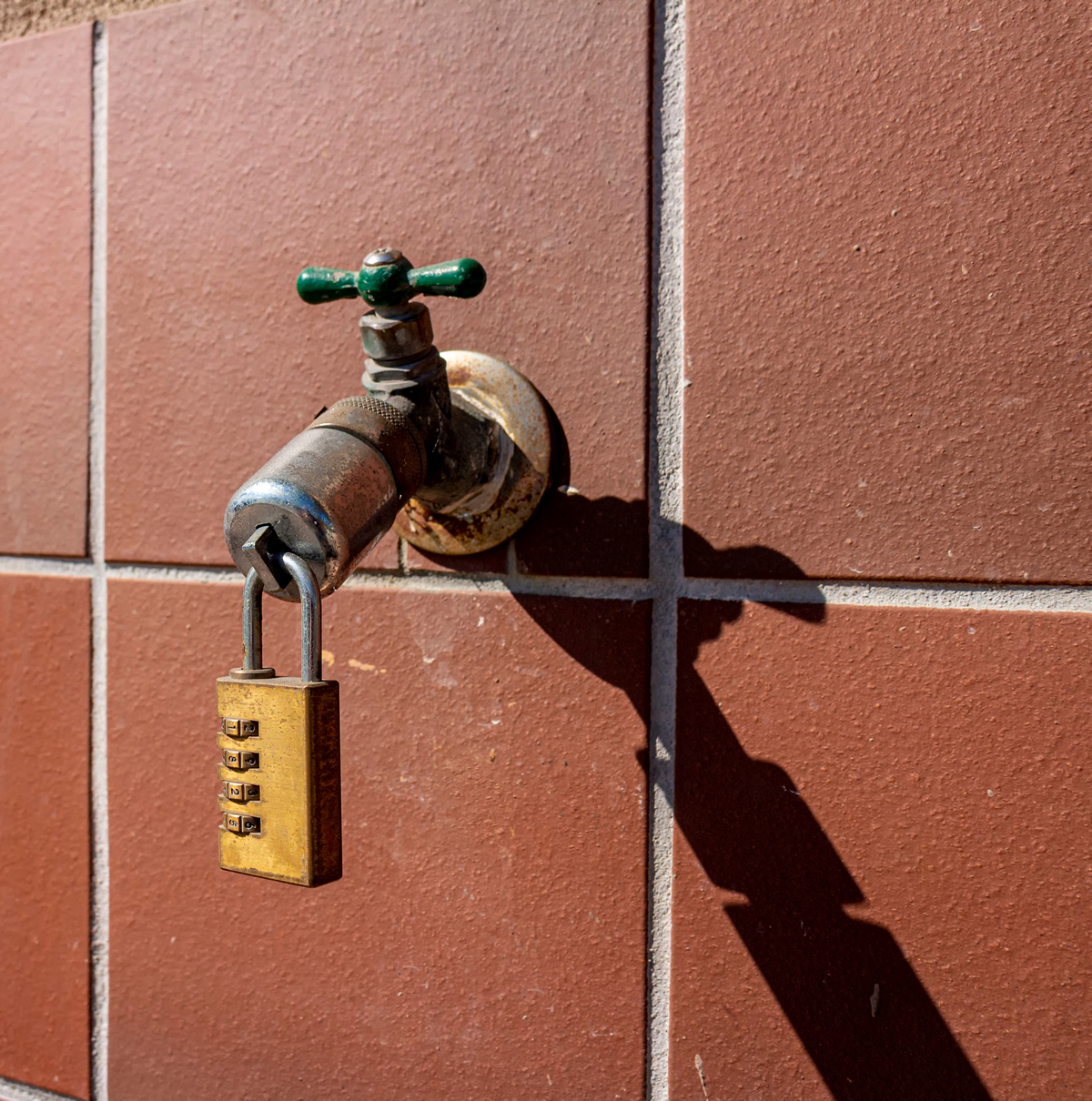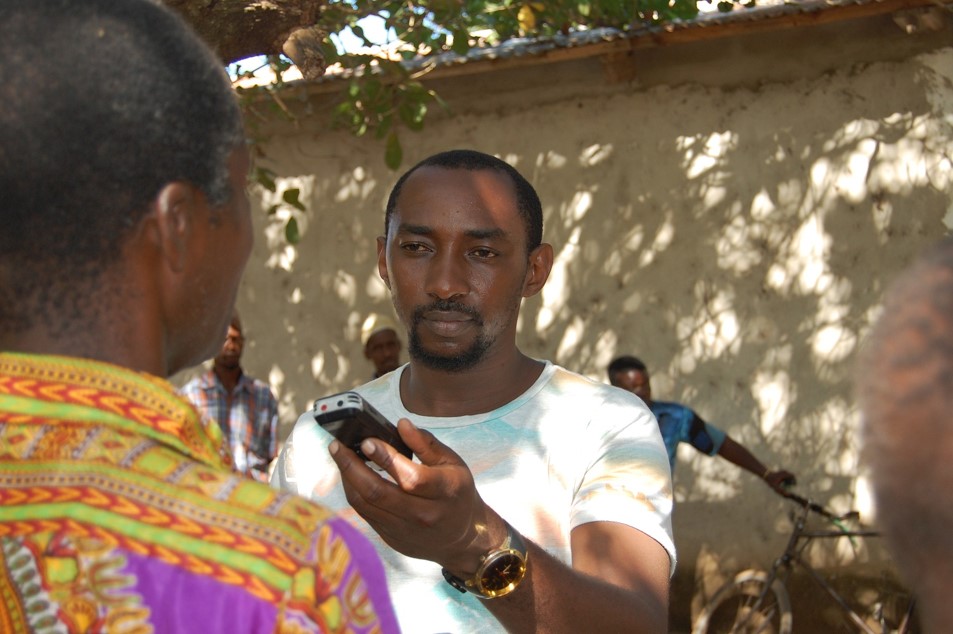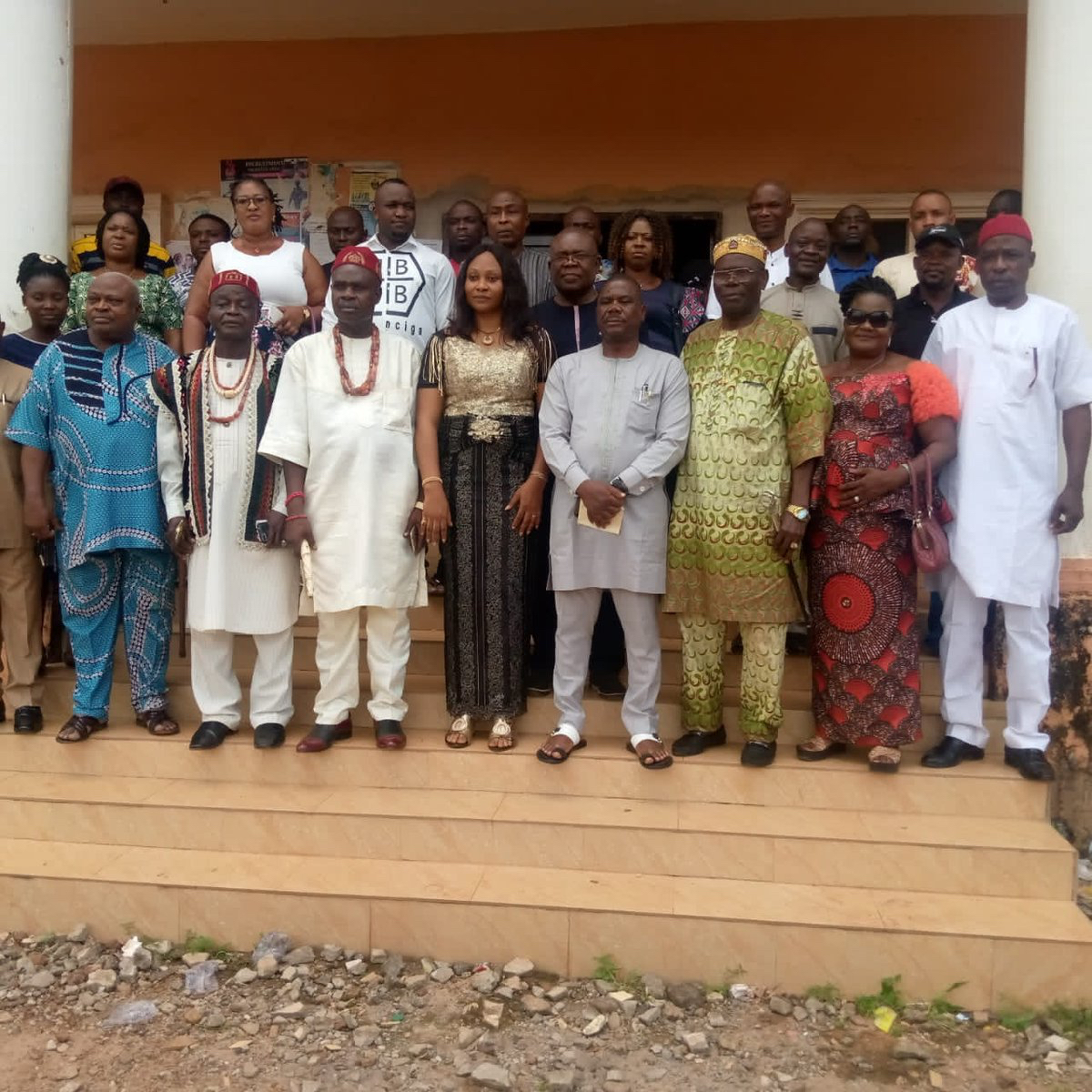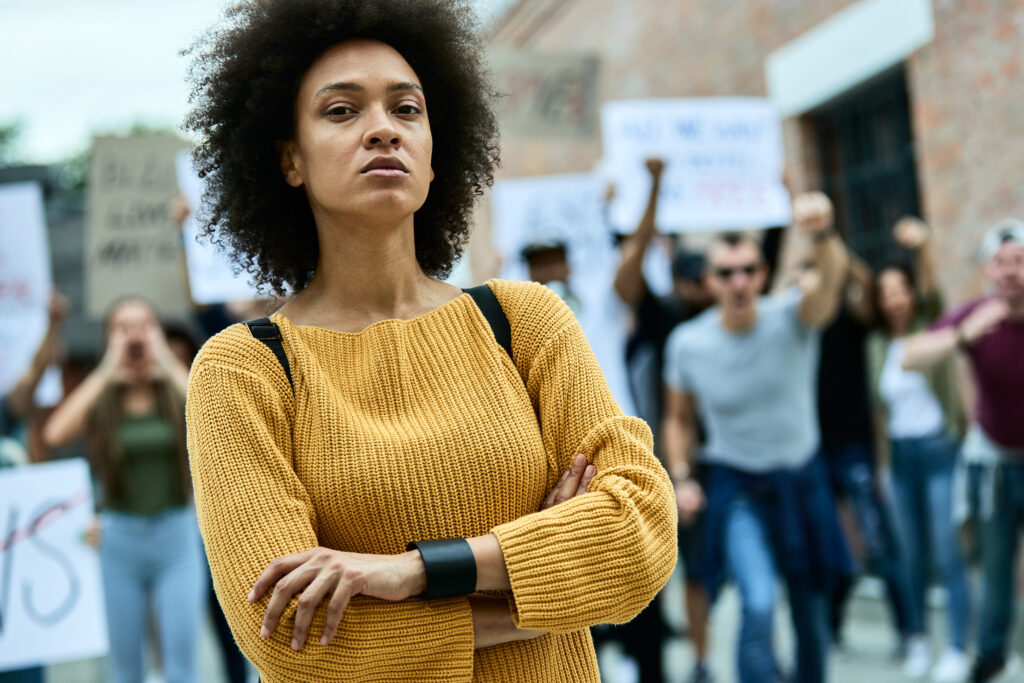Claim Your Water Rights

Why human rights?
Human rights are universal. Whatever your nationality, wherever you live – whether on the streets, in prison, or a refugee camp – water and sanitation are your human rights.
On 28 July 2010, the United Nations explicitly recognised safe water and sanitation as a standalone human right. In 2015, 193 countries strengthened their commitment to realising universal access to safe water and sanitation by 2030 when they adopted UN Sustainable Development Goal 6 (SDG 6).
Human rights offer a legal framework for holding governments accountable. As rights-holders, people have the power to challenge the denial of these rights. As duty-bearers, governments are obliged to respect, protect and fulfil human rights:
The obligation to respect means governments must create an enabling environment for people to enjoy their rights to safe water and sanitation. States must not take action that prevents people from realising their rights to water or sanitation, such as unduly disconnecting households, schools or public facilities from water and sanitation services.
The obligation to protect means governments must prevent third parties infringing upon the rights of people to safe water supply and sanitation services. It is the duty of the state to hold private companies to account should they violate people’s rights to water and sanitation.
The obligation to fulfil means governments must enact policies, laws and provide funding to progressively realise the human rights to safe water and sanitation services.
At least 50 countries have embedded the right to water in their national laws and constitutions to date. The rights to water and sanitation are also connected to other human rights, including the right to life, equality, health and a healthy, sustainable environment, which was formally recognised as a right in October 2021.



About the campaign
End Water Poverty envisages an engaged, emboldened and united civil society coalition employing a range of context-specific, community-led strategies under the global banner of Claim Your Water Rights.
We launched the campaign on 10 December 2019 (International Human Rights Day). The first phase of Claim Your Water Rights aimed to build awareness, knowledge and confidence to advocate using the international human rights framework nationally and locally. Many members focused on raising public and political awareness of the human rights to water and sanitation, identifying communities whose rights had been violated and informing them of their entitlements as rights holders, while informing governments of their obligations as duty-bearers.
Members employed a range of rights claiming strategies including community mobilisation, coalition building, media influencing, government engagement, research, data documentation, protest, litigation and more. Such diverse approaches continue to produce tangible results, including legal reform, influencing governments’ COVID-19 responses, infrastructure improvements and numerous communities successfully claiming their rights in multiple countries.
In the second phase of Claim Your Water Rights we will deepen and broaden the campaign by diversifying grantees and sharpening strategies. The short-term efficacy and long-term impacts of different strategies depends on local, national and regional contexts. Now that we have lessons and experiences to draw on from 26 different members in 14 countries, we will jointly assess what has worked, where and why.
Read our strategy for the second phase of Claim Your Water Rights for more information.
How do I apply for a mini-grant?
End Water Poverty typically publishes an open call for concept notes twice a year. Download and complete the concept note form and submit it to [email protected]. The Secretariat adjudicates against the published criteria and provides written feedback to members whose applications are unsuccessful.
- Need a Claim Your Water Rights refresher? Read our updated FAQs.
- Want to learn more about advocating using the human rights framework? Read our Human Rights to Water and Sanitation Advocacy Toolkit.
- How can civil society work with national human rights institutions to support communities to claim their rights? Read our Compilation of Good Practices.
- How can civil society advocate for climate justice through Claim Your Water Rights? Download our two-pager.

Granting guidelines
End Water Poverty operates on the principle that social change starts with civil society: without human rights defenders, there are no human rights.
We specialise in funding community-led direct civil society action that advances accountability, justice and human rights.
Each year we provide grants of £1,000-£5,000 through our core campaign Claim Your Water Rights so civil society can support people to claim their rights to safe water and sanitation.
Who is eligible for funding?
Every EWP member is eligible to apply for a grant. Each member can only submit one concept note per application cycle; multiple submissions from the same member will be discarded. Members applying for grants must be able to receive funds from international organisations according to their national laws and processes.
Over the course of each financial year we strive to reflect the geographic spread of our membership through our grants. Since 2019 we’ve funded 43 organisations in 17 different countries across Africa, Asia and Latin America. To ensure funds are distributed fairly among EWP’s membership, we will not fund the same organisation in consecutive granting cycles. This means that your organisation is not eligible to apply for further funding if you were one of our October 2023 grantees. We will provide a maximum of two grants per country each cycle so submitting joint concept notes with other members in your country or region could strengthen your chances of receiving funding.
Given the dearth of international funding for local advocacy, we devote most funds to grassroots campaigns. We will not fund applications from INGO members unless they are submitted jointly with members working at sub-national level.
What will we fund?
Claim Your Water Rights enables members to advocate on a range of different issues related to the human rights to water and sanitation – whether it’s accessibility, affordability, availability, acceptability or quality of service. We will also fund action that strengthens other related human rights – such as environmental rights, health rights, women’s rights, workers’ rights, and civil and political rights. Claim Your Water Rights aims to support members’ long-term advocacy objectives or to catalyse campaigning action on new or emerging issues. This means members can adapt their focus and tactics to their local or national context while working in global solidarity under one banner.
While Claim Your Water Rights is designed to embrace diverse aims and approaches, we have identified eight themes that are strategically important to the coalition and of common interest to members working across different countries and continents. To serve as many members as possible, we select applications that engage with at least one of the following themes:
- Climate justice: countering depletion and pollution; protecting watersheds and environmental rights; securing funding for adaptation
- Corporate accountability: business and human rights; upholding obligation of extractives, big business and private providers to respect rights
- Expanding civic space: participation; protest; legal empowerment; freedom of expression, assembly and association; unionisation
- Feminism and women’s rights: women-led advocacy; WASH in healthcare; sexual and reproductive health; period taboos and taxes
- Financing and tax justice: quality tax-funded public services; debt cancellation; combatting corruption, illicit financial flows, tax evasion
- Public control of water and sanitation services: resisting commodification, financialisation and privatisation; strengthening public ownership
- Strengthening national and international human rights institutions: building allies; lodging complaints; supporting investigations and redress
- Supporting marginalised communities to claim their rights: examples include asylum seekers and refugees, indigenous communities, informal settlement residents, LGBTQI+ communities, rural communities, sanitation workers, waste pickers, women and girls, etc.
Claim Your Water Rights strategies are designed and delivered by our members. In the past five years, members have employed varied and creative rights claiming actions. These include:
- Artivism: advocacy through music, theatre, film, visual arts, writing
- Community mobilisation and community-led campaigning
- Data documentation, disaggregation and dissemination
- Elections advocacy, government engagement, insider lobbying
- Litigation
- Lodging complaints to regulators or human rights institutions
- Media influencing
- Organisation, association, unionisation
- Policy advocacy and research
- Protest, demonstration, occupation
What won’t we fund?
- Partisan political actions
- Provision of services and infrastructure development
- One-off events that do not instigate further action
- Unsolicited proposals from non-EWP members
What do we expect from members who receive funds?
We expect all members who receive funds to:
- Seek value for money.
- Proactively share campaigning experience and expertise with other EWP members at national, regional and international levels. This could include speaking at learning exchanges, contributing written case studies or organising joint events.
- Publicise work online, tagging @EndWaterPoverty on social media.
- Send regular updates to End Water Poverty’s senior engagement officer, including pictures, videos, documents, news clippings, weblinks.
- Submit a final project report that covers the activities and aims stated in your concept note with links to outcomes and outputs.
- Complete campaign activities within the agreed timeframe.
FAQs
What is Claim Your Water Rights?
Claim Your Water Rights is a global public pressure campaign that aims to mobilise communities and civil society to demand their rights to water and sanitation from governments.
Is this campaign applicable to all water and sanitation related issues worldwide?
The inclusive nature of Claim Your Water Rights allows members to advocate on a range of different human rights issues related to water and sanitation – whether it’s disconnections, sanitation workers’ rights, climate justice or resisting privatisation. This means members can adapt their campaign approach to their local or national context while working in global solidarity under one banner.
What about sanitation?
We use the term ‘water rights’ as shorthand for ‘the human rights to water and sanitation’. Many members focus on water-related issues, others give equal priority to sanitation. The Indian Institute of Youth & Development for example organised rights awareness training for an Adivasi community in Koraput, Odisha. Following the training, the community filed a complaint to the National Scheduled Tribes Commission about concerning a lack of toilets. A subsequent report showed that the money allocated for toilets had been spent despite no construction work taking place. When the commission received the complaint, the government immediately started constructing toilets.
Similarly, Center for Law & Justice (CLJ) used Claim Your Water Rights to advance their campaign for the safety, dignity and wellbeing of sanitation workers in Pakistan. In June 2020 the Punjab Assembly passed an historic resolution recognising sanitation workers as “frontline heroes in the fight against COVID-10”. The Pakistan Supreme Court then ordered provincial and federal governments to provide safety kits to workers.
What about water permit rights?
In some countries the term ‘water rights’ commonly refers to water permits or water use licensing rights. Water permits are often more easily obtained by industries, corporations and large agricultural users. In naming our campaign ‘Claim Your Water Rights’, we foreground the water rights of marginalised groups.
How can civil society support rights claiming?
Our members’ campaign tactics encompass community mobilisation, media influencing, government engagement, research, data documentation, protest, litigation and lodging complaints to national human rights institutions.
Claim Your Water Rights gives members autonomy to create proactive, flexible, localised campaign strategies. This diversity of approach is central to the success of the campaign, and members employ a wide range of collaborative, coercive, confrontational and persuasive approaches to bring about change. We create opportunities for members to learn and exchange effective strategies in different civic spaces, providing links to human rights defenders networks and available emergency funds.
What is End Water Poverty's role?
We fund civil society members to conduct grassroots or national campaigns.
We also share information; publish members’ articles on our website; amplify members’ work through mainstream, independent and social media; organise webinars, workshops and exchanges with expert inputs; make joint policy submissions to international UN monitoring mechanisms and special procedures; platform members at regional and global events, and connect members with intersectional human rights advocates to sharpen their strategies and to strengthen solidarity.
End Water Poverty also convenes bi-monthly Claim Your Water Rights task team calls where coalition members from different regions exchange strategies, lessons and solidarity. The task team also offers guidance to the Secretariat, providing varied perspectives on local rights claiming realities as well as feedback on campaign documents and resources to hold the Secretariat accountable to strengthen the campaign and to offer equitable support to members.
Are there tangible examples of the campaign advancing people's rights to water and sanitation?
Yes! Over the past few years our members have achieved remarkable results, including legal reform, influencing governments’ COVID-19 responses, infrastructure improvements and numerous communities successfully claiming their rights in multiple countries.
Claim Your Water Rights’ success stems from the creativity, versatility, determination and resilience of our members. We documented our initial advocacy achievements in our 2019-20 Progress Report; celebrated the second anniversary of Claim Your Water Rights by gathering members’ campaign highlights into one very colourful Twitter mega-thread. Our most recent progress report (2020-2022) can be read here. To mark International Human Rights Day and the third anniversary the campaign we will publish a country-by-country report collating achievements and analysis from each member who has participated in the Claim Your Water Rights campaign.
What next?
The next phase of the campaign will build on the lessons and experiences so far, focusing on peer-to-peer exchanges to foreground the experience and expertise of grassroots human rights advocates. In 2022-23 we will co-design, facilitate and promote learning exchanges with members on: water, climate justice and extractive industries; using the media; and collaborating with national human rights institutions. There will be further exchanges in 2023-24 on a range of different topics.
Any more questions? Please contact [email protected].